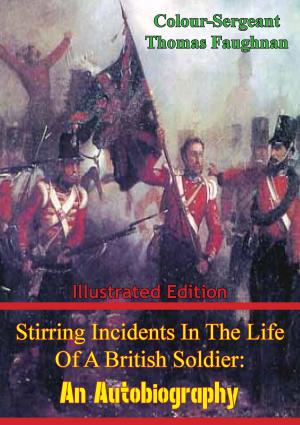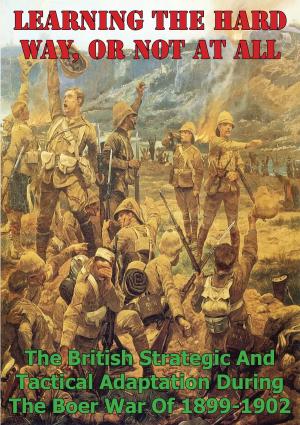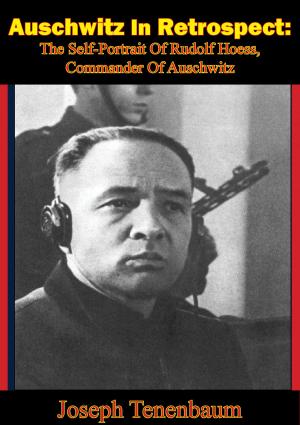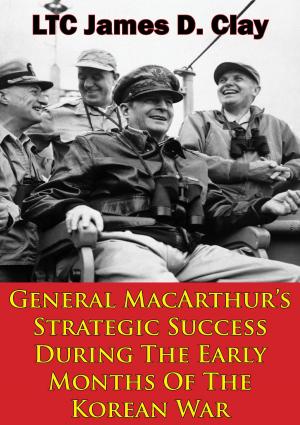Lord Roberts Of Kandahar, V.C.: The Life-Story Of A Great Solider [Illustrated Edition]
Nonfiction, History, Asian, India, Military, Other, British| Author: | Walter Jerrold | ISBN: | 9781786251633 |
| Publisher: | Normanby Press | Publication: | November 6, 2015 |
| Imprint: | Normanby Press | Language: | English |
| Author: | Walter Jerrold |
| ISBN: | 9781786251633 |
| Publisher: | Normanby Press |
| Publication: | November 6, 2015 |
| Imprint: | Normanby Press |
| Language: | English |
Includes 9 illustrations
“As a leader of men in the field he is, I believe, without equal.” — Sir Alfred Milner on Lord Roberts
In this excellent short biography of Lord Roberts, Walter Jerrold, tells the tale of his many exploits and victories across the British Empire.
“Roberts won the Victoria Cross at Khudagani during the Indian Mutiny (1857-59) for repeated acts of gallantry, but first came to public notice during the Second Afghan War (1878-80) when he commanded the Kurram Field Force, leading it to victory at Peiwar Kotal in December 1878, and later the Kabul Field Force which occupied the Afghan capital in October 1879 following the murder of the British envoy.
“Roberts also led his troops on the legendary march from Kabul to Kandahar. Despite the difficult terrain and the high temperatures he covered 280 miles (400km) in 20 days and hardly lost a man. In September 1880 he defeated Ayub Khan outside Kandahar and relieved the besieged garrison.
“After the early reverses of the Boer War (1899-1902), Roberts took over command of the British forces in South Africa. From December 1899, together with his Chief of Staff Major-General Horatio Herbert, Lord Kitchener, he revitalised the British military effort. Kindly, unassuming and courteous, Roberts was popularly known as ‘Bobs’. His small stature and elderly appearance - he was 68 when he left South Africa in 1900 - probably increased the veneration which he received from both the public and soldiers.
“On returning to Britain he was made a Knight of the Garter and created Earl Roberts. Despite a bitter rivalry with the Wolseley ring, Roberts was made the last Commander-in-Chief of the British Army, a position he held for three years until 1904.After lying in state in Westminster Hall, one of only two non-Royals to do so in the 20th century, the other being Winston Churchill, he was given a state funeral.”—NAM
Includes 9 illustrations
“As a leader of men in the field he is, I believe, without equal.” — Sir Alfred Milner on Lord Roberts
In this excellent short biography of Lord Roberts, Walter Jerrold, tells the tale of his many exploits and victories across the British Empire.
“Roberts won the Victoria Cross at Khudagani during the Indian Mutiny (1857-59) for repeated acts of gallantry, but first came to public notice during the Second Afghan War (1878-80) when he commanded the Kurram Field Force, leading it to victory at Peiwar Kotal in December 1878, and later the Kabul Field Force which occupied the Afghan capital in October 1879 following the murder of the British envoy.
“Roberts also led his troops on the legendary march from Kabul to Kandahar. Despite the difficult terrain and the high temperatures he covered 280 miles (400km) in 20 days and hardly lost a man. In September 1880 he defeated Ayub Khan outside Kandahar and relieved the besieged garrison.
“After the early reverses of the Boer War (1899-1902), Roberts took over command of the British forces in South Africa. From December 1899, together with his Chief of Staff Major-General Horatio Herbert, Lord Kitchener, he revitalised the British military effort. Kindly, unassuming and courteous, Roberts was popularly known as ‘Bobs’. His small stature and elderly appearance - he was 68 when he left South Africa in 1900 - probably increased the veneration which he received from both the public and soldiers.
“On returning to Britain he was made a Knight of the Garter and created Earl Roberts. Despite a bitter rivalry with the Wolseley ring, Roberts was made the last Commander-in-Chief of the British Army, a position he held for three years until 1904.After lying in state in Westminster Hall, one of only two non-Royals to do so in the 20th century, the other being Winston Churchill, he was given a state funeral.”—NAM
![Cover of the book Lord Roberts Of Kandahar, V.C.: The Life-Story Of A Great Solider [Illustrated Edition] by Walter Jerrold, Normanby Press](https://www.kuoky.com/images/2015/november/500x500/9781786251633-mU31_500x.jpg)



![Cover of the book Outpost War: U.S. Marines From The Nevada Battles To The Armistice [Illustrated Edition] by Walter Jerrold](https://www.kuoky.com/images/2015/november/300x300/9781786256065-MXac_300x.jpg)
![Cover of the book Gradual Failure: The Air War Over North Vietnam 1965-1966 [Illustrated Edition] by Walter Jerrold](https://www.kuoky.com/images/2015/november/300x300/9781786253989-JiYA_300x.jpg)
![Cover of the book The War In The Crimea [Illustrated Edition] by Walter Jerrold](https://www.kuoky.com/images/2014/august/300x300/9781782895510-86ue_300x.jpg)
![Cover of the book BEYOND COURAGE: Escape Tales Of Airmen In The Korean War [Illustrated Edition] by Walter Jerrold](https://www.kuoky.com/images/2015/november/300x300/9781786251138-RZqk_300x.jpg)




![Cover of the book Vietnam Studies - The War In The Northern Provinces 1966-1968 [Illustrated Edition] by Walter Jerrold](https://www.kuoky.com/images/2014/august/300x300/9781782893592-HL93_300x.jpg)


![Cover of the book Vietnam Studies - The Role Of Military Intelligence 1965-1967 [Illustrated Edition] by Walter Jerrold](https://www.kuoky.com/images/2014/august/300x300/9781782893653-nfqG_300x.jpg)